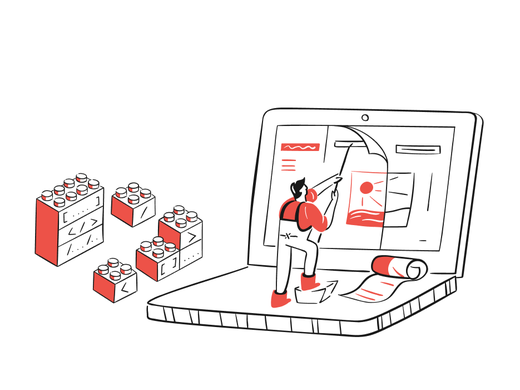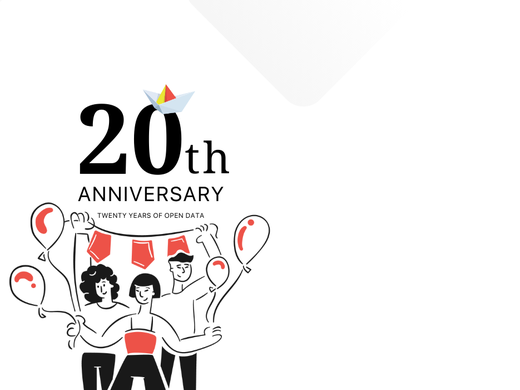Funding provided through the National Science Foundation’s “Pathways to Enable Open-Source Ecosystems” Program will be used to develop a plan to strengthen the CKAN ecosystem
Transparency is a necessary element enabling people to hold their leaders accountable, and is essential if governments hope to build trust with the public. Since 2006, CKAN has been a critical resource enabling public agencies and civil society organizations to openly share data. The CKAN open-source software powers many open data and transparency initiatives around the world, including the United States, Singapore, Mexico, London, Istanbul, and the Humanitarian Data Exchange of the United Nations Office for the Coordination of Humanitarian Affairs.
CKAN has evolved both as a product and through its governance structure over the past 16 years. It was founded by Rufus Pollock (founder of Open Knowledge Foundation - OKFN) as part of his work there, and is now managed by two co-stewards, (Datopian and Link Digital), with the assets held in trust by OKFN. Over the years, an ecosystem of stewards, consultants, developers, adopting organizations, and data users has formed around the product.
It is essential that the CKAN ecosystem remains robust. For civic data to remain a public good, we must avoid locking it up inside proprietary platforms whose owner’s profit motives may conflict with open and democratic values. Earlier this year, the U.S. National Science Foundation launched its Pathways to Enable Open Source Ecosystems (POSE) funding program to support open source technologies that provide solutions to problems of national and societal importance. Earlier this month, a team composed of faculty and staff at the University of Pittsburgh and datHere were awarded a planning grant to develop a plan to strengthen the CKAN ecosystem.
The team will work with CKAN stewards to explore several issues through this project, including:
- Adequately supporting and managing product maintenance;
- Integrating innovations developed by members of the ecosystem with the core product;
- Maintaining relevance with changes to the transparency and open data landscape; and
- Ensuring that user needs are integrated with product development road maps.
For the next year, the team will engage members of the ecosystem in a series of activities, which will include:
- Documenting CKAN processes and workflows;
- Visualizing participants in the CKAN ecosystem;
- Researching other open-source ecosystems;
- Engaging members of the CKAN ecosystem in interviews and virtual workshops; and
- Connecting with current and potential users in external communities of practice.
Once the initial ecosystem discovery activities are complete, members of the ecosystem will help to interpret the findings and inform the plan to strengthen the CKAN ecosystem through sense-making workshops and activities. The plan itself will address CKAN governance and business models, identify opportunities to strengthen business processes, look to increase adoption of CKAN as a data management product, and outline additional strategies to sustain the project through a financial plan and community engagement strategy.
The Project Team
The team at the University of Pittsburgh includes the staff from the Western Pennsylvania Regional Data Center project based at the University Center for Social and Urban Research. This team manages a CKAN-based community open data portal featuring data from project partners at Allegheny County and the City of Pittsburgh, and the project provides a range of data services to members of the local ecosystem. The University’s project team also includes Dr. Nora Mattern of the University’s School of Computing and Information. She has collaborated with the Regional Data Center team through the Civic Switchboard project, an initiative to develop the capacity of academic and public libraries in civic data ecosystems.
datHere is led by Joel Natividad and Sami Baig, working closely with several CKAN veterans around the world. After winning NYCBigApps twice, they founded their first open data startup – Ontodia in 2012, becoming the first CKAN professional services partner in the US, helping with several CKAN implementations, including NYC’s Department of Education, WPRDC and Boston. Ontodia was acquired by OpenGov in 2016, and while there, they helped implement OpenGov’s CKAN SaaS offering – which is in operation at ~50 agencies of all sizes across the US. After co-founding datHere in 2020, they’re continuing their decade long open data journey, focusing on enterprise class open source data infrastructure, with CKAN at its core.
For more information about the project, please contact Robert Gradeck or Dr. Nora Mattern at the University of Pittsburgh (wprdc@pitt.edu), or Joel Natividad of datHere (joel@dathere.com).
This project (National Science Foundation award number 2229725) is funded by Pathways to Enable Open-Source Ecosystems (POSE) which seeks to harness the power of open-source development for the creation of new technology solutions to problems of national and societal importance.
❖ This is a guest blogpost by Bob and Nora - the Principal Investigators for Phase I of the project. The article was initially published on WPRDC's website.

